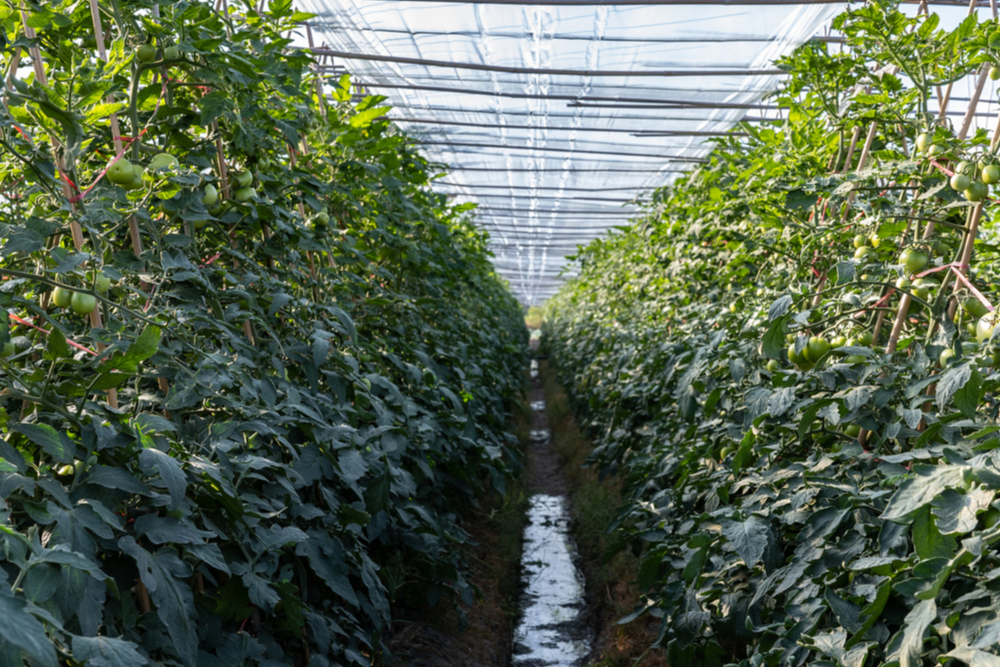North Macedonia: Circular business models to drive sustainability in the Natural Ingredients and Processed Foods sectors
The Economic Chamber of North Macedonia (ECM), in partnership with the team of SIPPO North Macedonia under the lead of Elena Miloshevska Jovanovska, tasked the Value Chain Generator® (VCG-ai) - a German company based in Stuttgart - to assess North Macedonia’s current waste management practices within the Natural Ingredients and Food sectors and identify opportunities for circular business models. The goal: Drive sustainability.

North Macedonia relies heavily on agriculture and food processing, generating large amounts of organic biomass as a result. Despite the abundance of available bio-waste, most of this feedstock remains underutilized. In the best cases, the residuals are currently used as animal food or sent to biogas plants, which are the only available options in the country so far for reusing the bio-waste, but it doesn’t fully comply to circular economy principles. According to circular economy principles, these should ideally be fallback options, not primary ones, and the full value of bio-waste streams is not being realized. Thus, the Economic Chamber of North Macedonia (ECM) asked SIPPO to support its efforts to promote circular practices in the agriculture and food processing sector.
A valuable analysis tool of the German company VCG-AI
The tool the company Value Chain Generator® (VCG-AI) is using intends to create effective circular value chains. VCG.AI offers a solution platform designed to identify biowaste recycling cases that are tailored to different residues, sectors, countries and specific conditions. The platform helps identify various residual waste streams and assess their commercial viability.
- Which are the most viable implementation options?
- Which are the waste streams and the best conversion technologies?
- Who are the suppliers and potential buyers?
To find the answers, it analyses company data from 200 producers in North Macedonia from the sector of agriculture and food and helps BSOs realise the full value of their members' various waste types.
Concrete examples lead to better understanding of the potential of a circular economy
VCG.AI's analysis has identified several important waste streams in North Macedonia that can be converted into valuable secondary materials or new ingredients. Here are two examples:
- Grape Pomace from winery and grape growing residuals can be converted into very valuable products for the pharma industry and cosmetics like Pectin or Polyphenols.
- Tomato production residuals such as pulp, skins, or wastewater from the Vegetable Industry is the main source of Lycopene also used for cosmetics, pharma, and food applications.
It became evident that North Macedonia is well-positioned to transform selected biomass residuals into valuable circular products and ingredients that are in high market demand. Led by the ECM, discussions with private sector representatives are now underway to explore how to develop these options into circular business models and how to identify investment opportunities.
SIPPO North Macedonia and ECM discussed the findings in a workshop
In spring 2024 SIPPO North Macedonia and ECM organised a workshop with 44 participants, who all were representatives from ECM, the private sector and Governmental Institutions. This workshop provided guidance to ECM and the companies from the food sector for enhancing their sustainability strategies by implementing environmentally friendly bio-waste management practices.
(This news story is based on comprehensive material from the website of VCG-AI. Read more about the interesting analysis in the case study: https://vcg.ai/portfolio/case-study-north-macedonia/ )



 Colombia
Colombia











